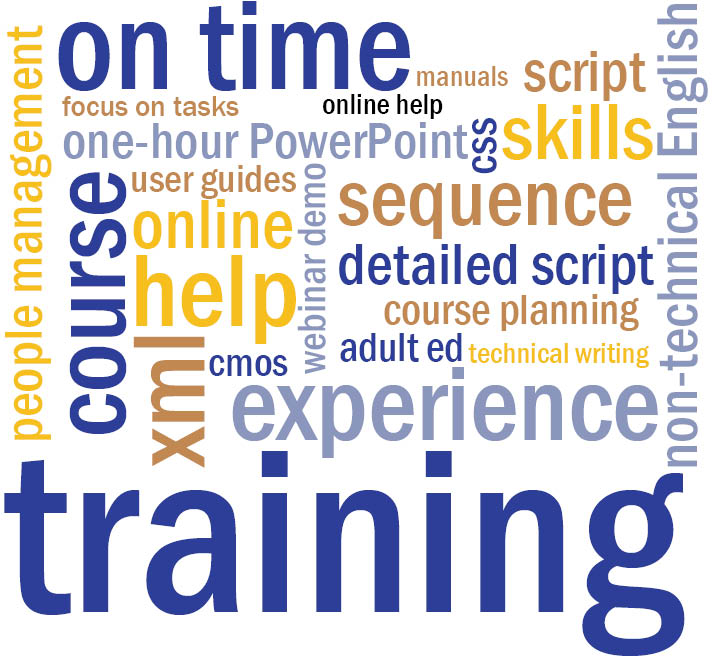By Stephen Gauer
You’re written the user guides and online help for the new application and now the client needs someone to train the staff. Why not take the plunge and add training to your skill set?
Here are some tips from my 25 years of training:
Tip #1: write a detailed script
In the old days, we had one or two days to train staff in new applications. People are computer savvy now, and time is scarce, so training is often just a one-hour PowerPoint or webinar demo. This time constraint means a detailed script laying out the sequence of your instruction is absolutely crucial.
Tip #2: focus on tasks
A training session should be like a day at work; the user’s logical workflow should dictate the sequence of your script. Training is not a tour of the interface or an encyclopedic A to Z function review.
Tip #3: set expectations
Before you start, tell your students exactly what tasks and features you will cover.
Tip #4: avoid techno-talk
Avoid terms like “thin-client” or “secure HTTP”. Your students probably don’t care about the technology or how it works. They need to learn the application so they can do their jobs. If you’re asked a question that requires a technical answer, then translate it into non-technical English.
Tip #5: be positive
A good trainer is positive and inspires confidence in students. You don’t have to say that the new application is the greatest thing since sliced bread, but you should show genuine enthusiasm for what it does. Is it truly easier, faster, better than what came before? Then say so.
Tip #6: learn from the students
Training is a great way to observe how people learn a new application, and how they use (or ignore) your documentation. Often the trainer is the only person on the development team who sees end users actually using the software. This experience is worth its weight in gold.
Tip #7: respect the students
Never talk down to students, and don’t over explain. Teach them what they need to know. Remember that learning new applications is not the focus of their jobs. They’re doing their best under what may be difficult working conditions, and your job is not to impress them with your technical knowledge but to provide the best training you can.
Tip #8: embrace the clock
Start and end your session on time. Your students are busy people and will appreciate it.
Tip #9: don’t be a know-it-all
You can’t possible know the answer to every question you’ll be asked. It’s perfectly acceptable to say “I don’t know, but I will get back to you on that.”
Tip #10: take an adult ed course
If you like training and want to do more of it, take a course in adult education offered by a post-secondary institution. You’ll learn some theory, which might be useful; better yet, you’ll learn some useful course planning and people management techniques.

Stephen is a senior technical writer with more than 20 years experience writing for corporate and hi-tech clients in Vancouver and Toronto. He is the past president of the STC Canada West Coast chapter.

